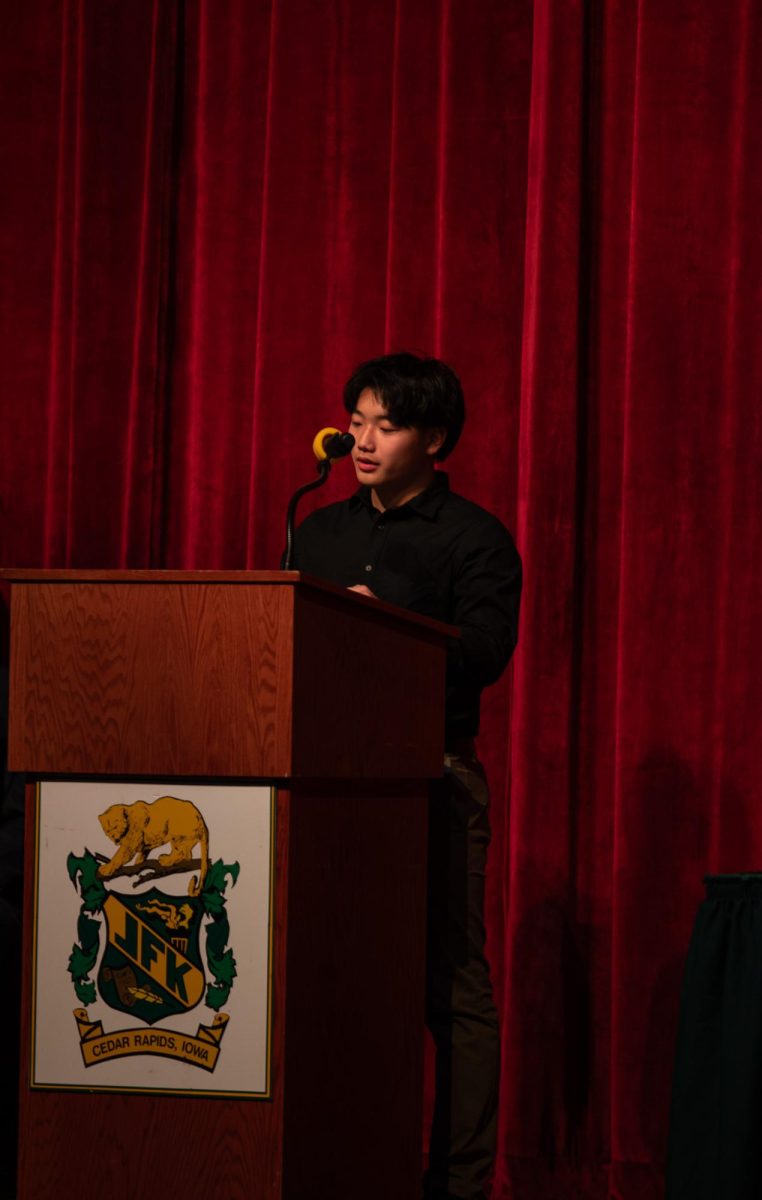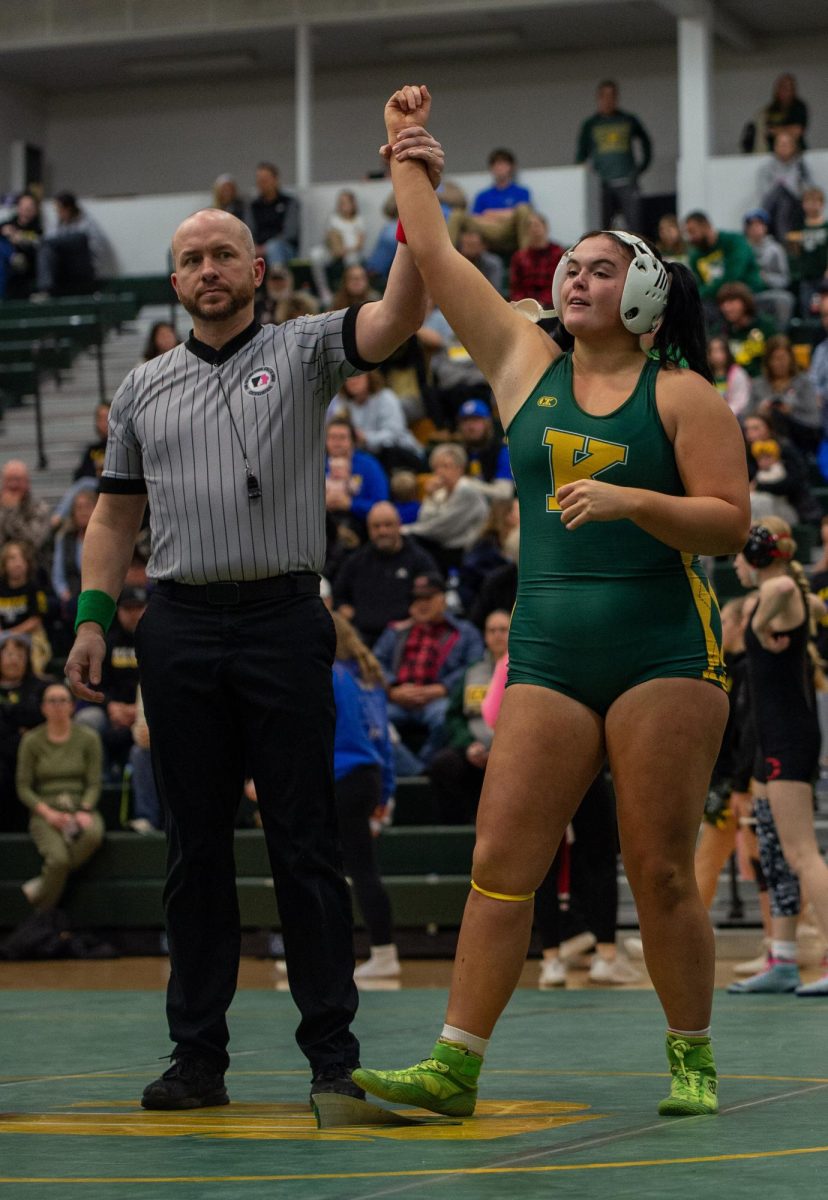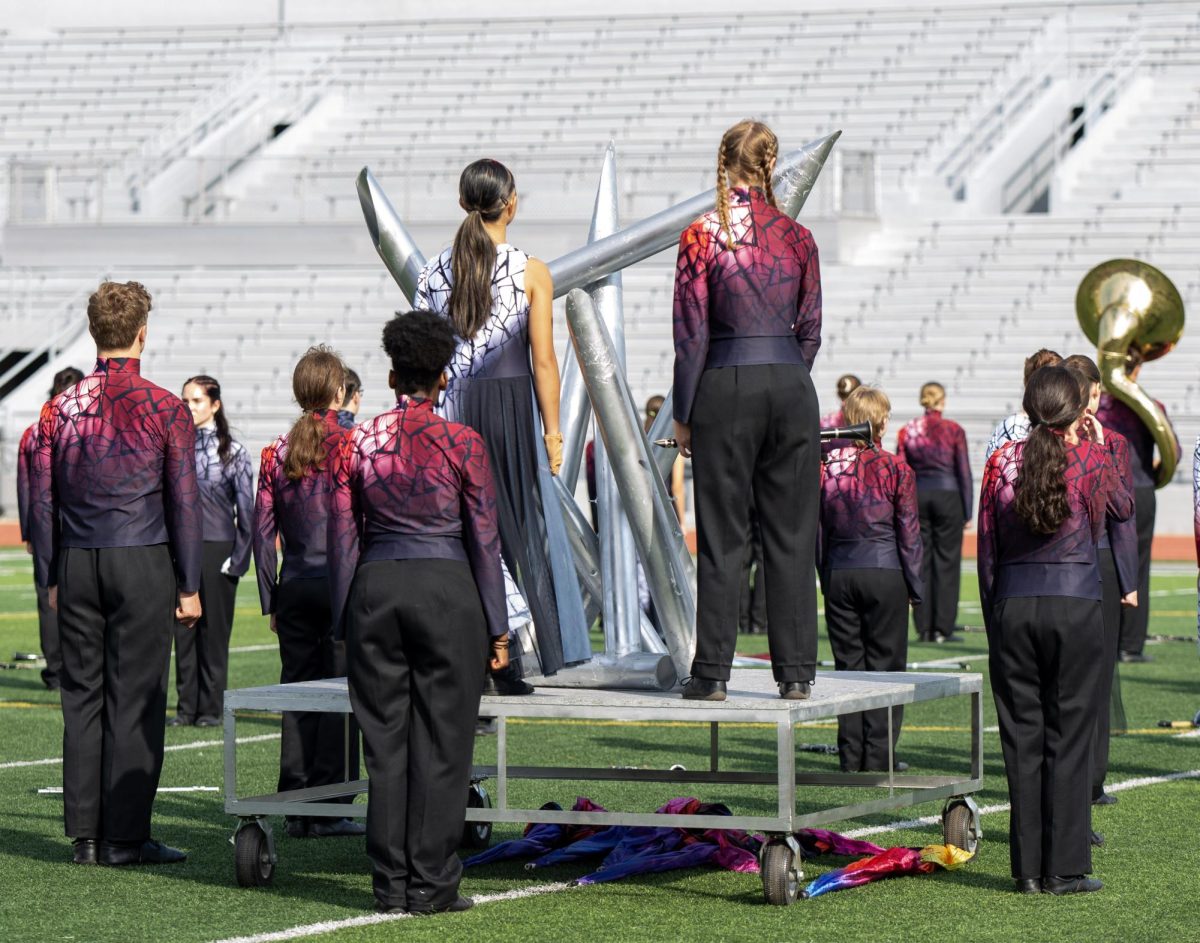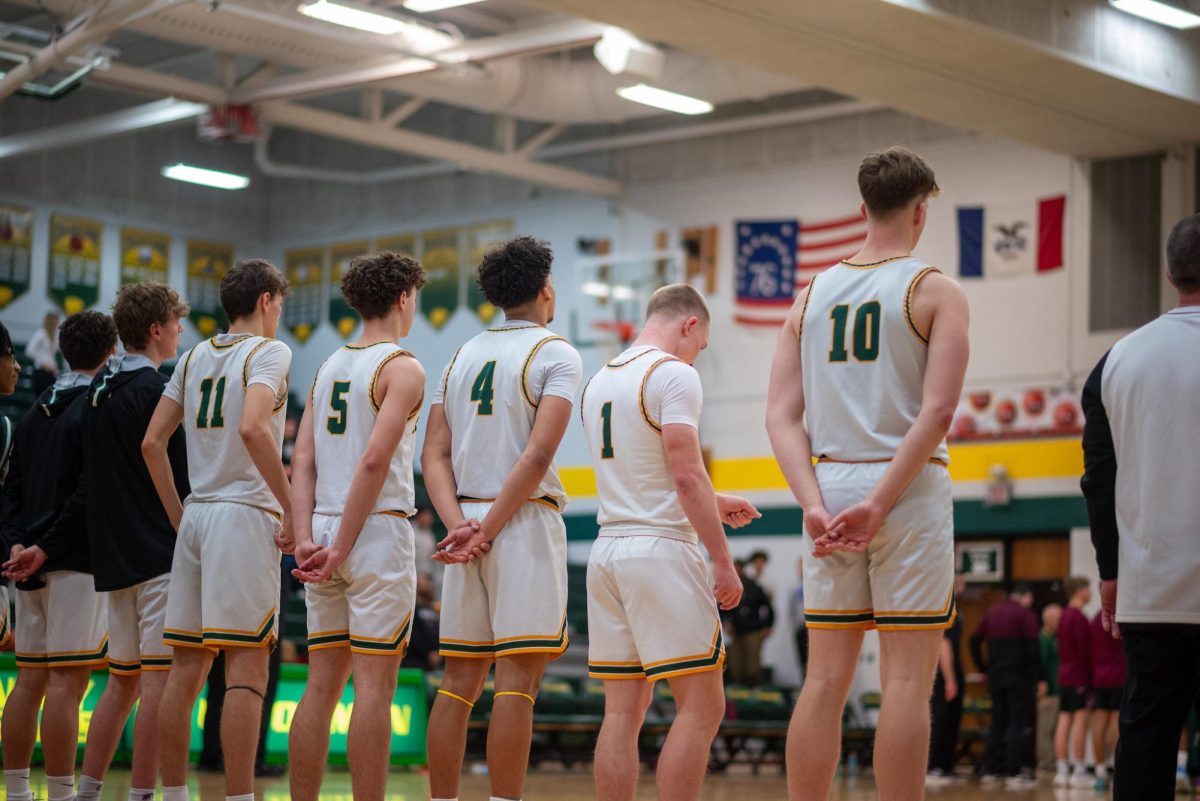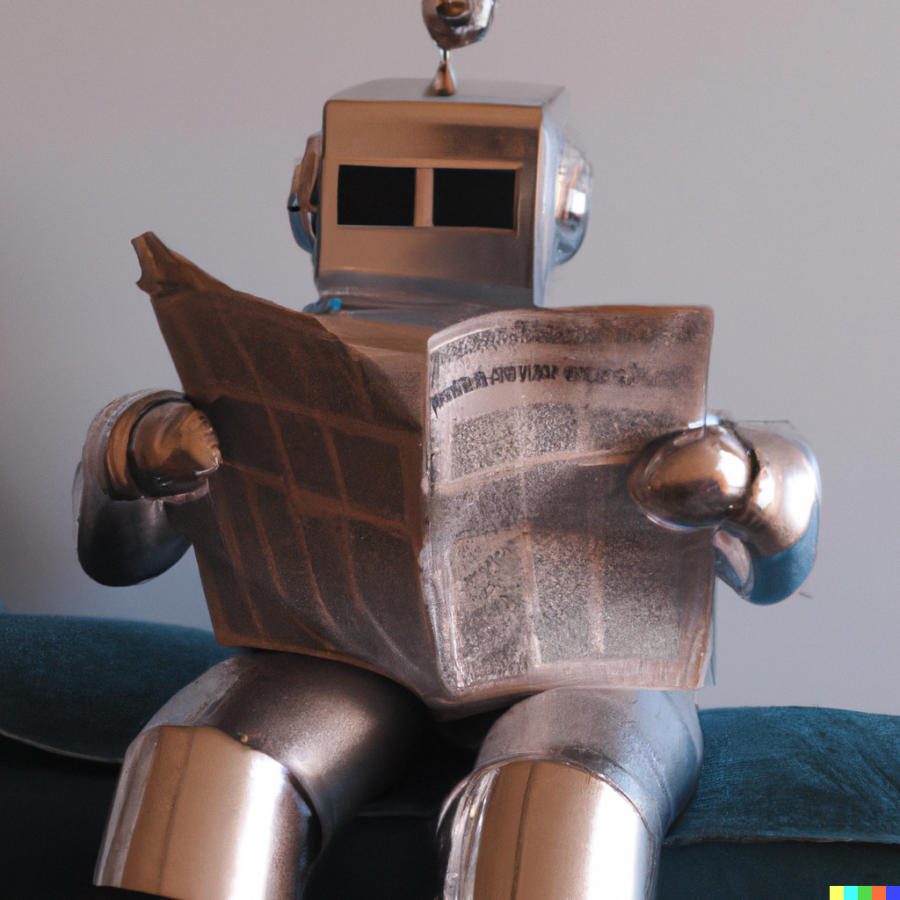Robo-Writers: How AI Disrupts the Education and News Industries
Open AI’s DALL-E 2 creates specific stylistic images from text prompts written by users.
September 2, 2023
Artificial Intelligence (AI) chatbots revolutionized writing, but just how close are robots to taking over the content creation industry?
Closer than you think. Go back and read the title. Open AI’s chat GPT wrote it.
Bots call you every day about your car’s extended warranty, they flood messaging sites with virus links and curate ads but it wasn’t always this way. The first-ever “Chatbot” was created by Joseph Weizenbaum in the MIT AI lab. Its name is Eliza, and she was made to give therapy. A robot giving therapy? At the time, preprogramming responses to real people was a technological first. People were loving it.
A real conversation between Eliza and another bot, Parry, from September 18, 1972, shows a little of what these bots can do.
(Parry was a bot designed to represent a schizophrenic patient.)
PARRY Encounters the DOCTOR
ELIZA: Good Evening.
ELIZA: Tell me your problems. Please terminate input with a period or a question mark.
PARRY: People get on my nerves sometimes.
ELIZA: I am not sure I understand you fully.
PARRY: You should pay more attention.
ELIZA: Suppose you should pay more attention.
PARRY: You’re entitled to your own opinion.
ELIZA: What makes you think I am entitled to my own opinion?
PARRY: It bothers me just to be around people in general.
ELIZA: Please go on.
Go on they did. Eliza was the beginning of the era of AI.
AI’s impact on the news industry is a complex and evolving issue, and while AI has the potential to revolutionize news production, it also presents new challenges and ethical considerations. It will be important for journalists to navigate this new landscape and find ways to leverage AI in ways that support, rather than replace, the important role that journalists play in providing accurate, trustworthy and independent news. The future of journalism and the role of AI in content creation is still being written, and it will be up to human journalists to shape the narrative and ensure that the impact of AI on the news industry is positive.
Alongside other issues, students present a massive problem regarding the ethics of AI. Chatbots can be used to help kids with their homework.
According to Sarah Hayes, Kennedy language arts teacher, students have used AI to write in class. Teachers were given multiple ways to figure out if a piece was made by AI, but no detector is perfect.
Hayes further explained AI at the professional level can only be used effectively for fact-based writing so far.
“To get people to read there needs to be an emotional component. I don’t know if AI can do that yet,” Hayes said.
These bots can do more than students’ homework. Any household with internet access can have a robot write them stories, talk about their issues, teach them, create recipes and more. With artificial intelligence being as smart as it is now, there’s no turning back. 30 years from now, will we look back thanking the creator of AI, or will we be shaking our heads, wondering where it all went wrong?
Can you tell which paragraph was written by AI?


